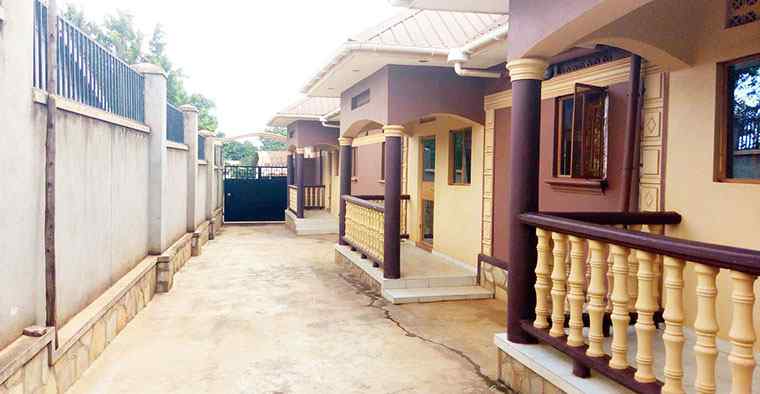Owning a home in Uganda is achieved through three major avenues; purchase, self-build or inheritance. The first two avenues require commitment and funds that are not easy to come by for most of Uganda’s young population.
This, to a greater extent, has led to the growth of build-to-rent properties that are often single or double bedroom units.
Such premises are usually close to the city centre and are convenient for those who have just joined the employment/ business world, or for small families. Kampala is a city that records the highest number of commuters in Uganda, many of whom spend hours moving from their homes to work and back.
The few who can’t stand such a waste of time which, if compounded, amounts to wasted years and earnings, take on the burden of high rent in areas that are close to their places of work.
The increase in land values as one moves closer to the central business district discourages many from buying plots and setting up homes close to the city centre. Our preference for standalone homes makes it inconceivable for many to live and work in the same building in the city, with the business on the ground floor and dwelling on the higher floor.
As a result, many Ugandans part with as much as Shs 36m in rent per year, excluding utilities. When you compound the money paid in rent over time, one wonders whether such an amount would have been better spent making monthly deposits that would result in home ownership.
Such a deposit would be higher than what one pays in rent but would take them closer to home ownership. A one, two, three or four bedroom unit would be opted for depending on the affordability and user needs.
A rent-to-own scheme works best for renters who cannot raise a large initial deposit that would help them qualify for a mortgage. With high interest rates on mortgages in Uganda, this would be a solution for many who can’t afford to build a home.
For someone who pays Shs 1.5m in rent every month, a rent-to-own plan means they can contribute as much as Shs 18m per year to their home ownership account. Rent of Shs 500,000 a month would amount to Shs 6m a year. Mathematically, such a scheme makes sense and yet few property developers have ventured into it. This makes us wonder why. What are the problems with this arrangement?
The low levels of saving in this country point to our inability to commit to long-term projects, a factor that is important if a build-to-rent scheme is to bear fruit. If a total purchase amount for a house is Shs 70m to be paid within an eight-year period, one would need to part with Shs 750,000 a month for the eight years. Few Ugandans have a record of consistently saving such an amount for a long period of time.
An assured source of income is another requirement. With many Ugandans employed in the informal sector where earnings are often unstable, and with many in the country falling in the low-income bracket, developers shy away from a rent-to-own scheme for fear of having their hands burned.
Finance is needed to meet the demand and the supply of real estate. The high interest rates on such funds determines the projected payback period that might not be achieved in the shortest time possible, following the rent-to-own option.
On the side of the buyer, when a tenant defaults on payments, the landlord can take over the property since he/she retains ownership. Also, in the course of renting to own, the tenant is responsible for repairs to the exterior of the house that are often done by the landlord, which makes it more expensive.
But should we give up completely or should we give hope to the millions that seem destined to remain renters for life? One of the solutions is to bring down the cost of the house by either building on cheaper land, using cheaper materials, or increasing the number of residents per acre by constructing storied structures with multiple units.
The other solution is to start with a target market of corporate clients or those with stable sources of income who pay more in rent each month and have an assured source of income.
A group of people can even get a loan, buy land and build houses for themselves, then contribute what they would have paid in rent to repay the loan.




